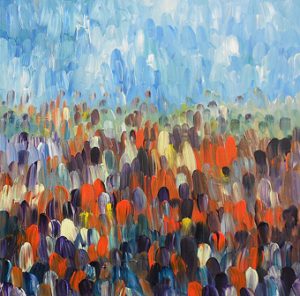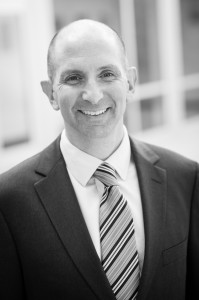 I was at Disneyland when Paris was attacked. My daughter was waiting to take her picture with Mickey Mouse when the number of dead started being reported. By the time we got to the “It’s a Small World” ride, I received an email asking why the Jewish social-services agency I lead would resettle Muslim refugees.
I was at Disneyland when Paris was attacked. My daughter was waiting to take her picture with Mickey Mouse when the number of dead started being reported. By the time we got to the “It’s a Small World” ride, I received an email asking why the Jewish social-services agency I lead would resettle Muslim refugees.
My ancestors were refugees. As a girl my daughter’s age, my grandmother wasn’t at Disneyland — she was escaping Russia hiding in a hay wagon while men stabbed it with pitchforks. In fact, virtually anyone who is a member of the Jewish community has ancestors who fled persecution, or worse, death.
This is the story of many who came to the United States. This is an American story. Those of us who are the descendants of those who survived must not climb the ladder and then pull it up behind us. It is a moral obligation that we act to help those who are persecuted today.

There is no word in the Jewish tradition for history. The word we use is memory. We must remember the courage of those righteous Christians who risked their lives to save those who were hunted during the Holocaust. And we must not ignore the memory of those who locked their doors and watched the slaughter from their windows.

This is a fight, but not just against terrorism. It is battle about the soul of our community and our nation. There is a haunting echo of the past when politicians suggest without irony that we only allow Christian refugees to enter our country or that we require Muslims to carry an identity card.

I fully appreciate how incredibly complicated the refugee crisis is. For some of us, there are security concerns. For others, there are concerns about importing anti-Semitism. But life is about learning how to make decisions and live in the gray when our world is not black and white.

What is the point and what is left if, out of fear, we sacrifice our deepest-held values as a country, as a community and as individuals? What will we say to our children when they ask us? We must not lock the door out of fear. Even if we are uncertain, we are commanded to act with moral courage.
I want my children to see us at our best in dark moments. Even if our flames waver, being a light unto the world matters most when others are in darkness.
 By Rabbi Will Berkovitz
By Rabbi Will Berkovitz
Will is CEO of JFS. He and his wife Dr. Lelach Rave, live with their three children in North Seattle. Will is a long-distance runner, avid hiker and backpacker. He particularly enjoys volunteering in the Polack Food Bank and helping with refugee resettlement.
This piece was originally published by The Seattle Times in December 2015. Questions provided by Beth Huppin, Director of Project Kavod at JFS.
“Exodus” photo courtesy of the artist Leslie Anne Cornish.



